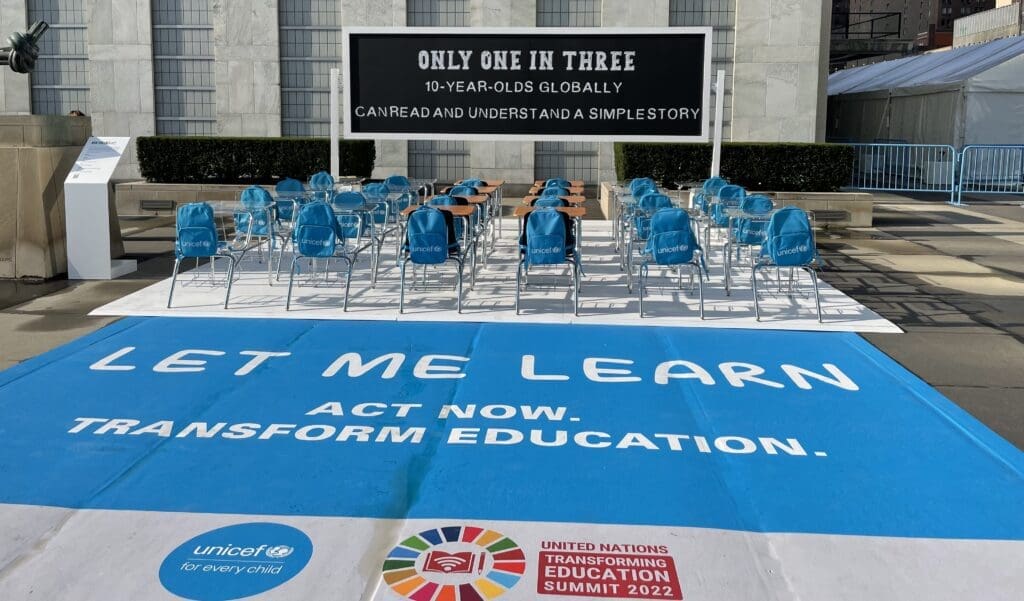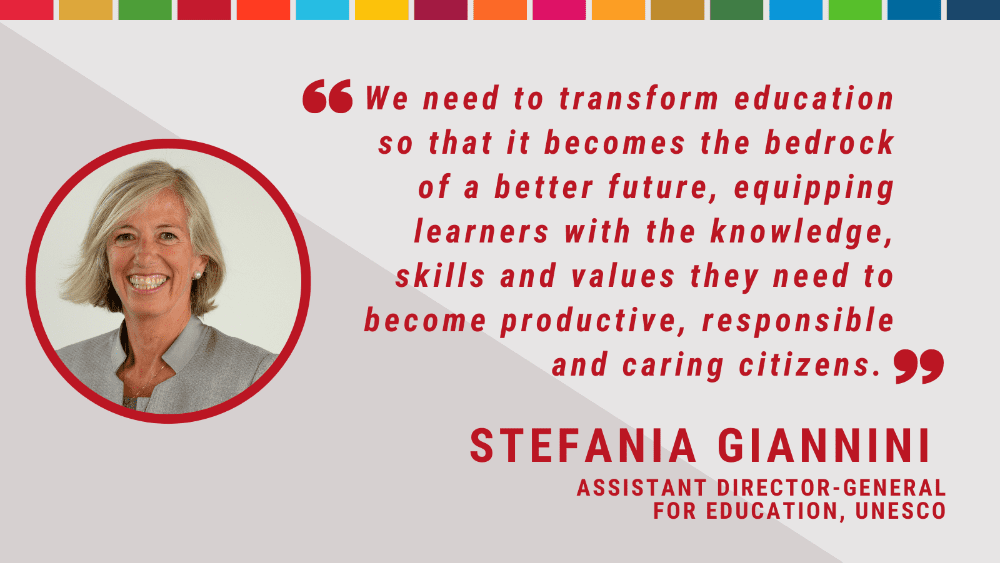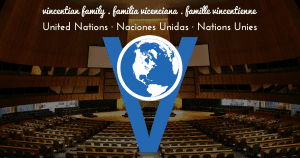Education is a human right. Education is a common public good. Every child and young person have the right to go to school and learn. Quality education from early childhood can transform every child into an extraordinary citizen. In fact, education transforms the world. Our governments have failed to invest in education and in turn, sacrificed the future of many generations. According to UNICEF report, only one in three ten-year-old globally can read and understand a simple story. In his opening remarks, Secretary-General Antonio Guterres stated that “Instead of being the great enabler, education is becoming a great divider.” The rich and the privileged have access to the best resources, schools and universities, while the poor, especially girls, displaced people and students with disabilities face huge obstacles in getting the qualifications that could change their lives.

The education crisis is not new. It has been compounded the COVID-19 pandemic and the triple planetary crisis – climate change, biodiversity loss, and pollution and waste; the ongoing conflicts and wars as well as by the digital divide and financing gaps.
Here are some shocking data on education globally:
- In 2021, 244 million children and young people were out of school.
- 12 million children will never set foot in a school.
- Globally, 118.5 million girls are out school.
- Children with disabilities are 2.5 times more likely to have never been in school than their peers without disabilities. In developing countries 90% of children with disabilities do not attend school
- In low-income countries, just 20% of children are enrolled in pre-primary education.
- 344 million children do not complete primary school and learn the basics.
- 50% of refugee children do not receive education
According to UNICEF Director Catherine Russell, “under resourced schools, underpaid and underqualified teachers, overcrowded classrooms and archaic curricula are undermining our children’s ability to reach their full potential.” This failure to educate an entire generation has to be reversed to ensure education serves our shared needs and common futures. According to the UN Secretary General, “Education transformation is needed for inclusive, just and peaceful world.”
The Transforming Education Summit is an initiative of the UN Secretary-General, to accelerate the implementation of sustainable development goals and to find new ways to work together for the common good. It is part of his proposal to think for the long term and to deliver more for young people and succeeding generations through a new social contract anchored in human rights. “Education must help people learn how to learn, with a focus on problem-solving and collaboration…social and emotional skills…capacity to adapt to the rapidly changing world of work…distinguish fact from conspiracy, instill respect for science, and celebrate humanity.”
The Summit was organized under five Thematic Action Tracks – key levers to transform education by focusing on five areas that need attention. These Action Tracks are meant to mobilize education financing and global solidarity commitments from governments and all stakeholders.
- Make educational systems places of equal opportunity and shared abundance by advancing inclusion through changes to educational cultures and practices that reduce competition and selection. Education systems must be inclusive and prioritize education for all.
- Foster curricula focused more on connections than categories by supporting interdisciplinary, intercultural and ecological approaches in and outside formal education. Curricula transformation can help learners to better understand and act on the interdependencies, inequalities, asymmetries, and relationships that shape today’s world.
- Support teachers to create transformative education by investing in teaching that builds cooperation and solidarity. Teachers should have dignified working conditions and ongoing professional support, transparent compensation, healthy and safe workplaces and systems to help them to use expertise and judgement in designing student learning.
- Make digital technology and learning more inclusive, equitable, effective, relevant, and sustainable. (Inequities in digital access was evident during the COVID-19 pandemic – 1.3 billion children did not have internet access at home.) Key issues are digital transformation of education systems; connectivity/narrowing digital divide; inclusive/assistive technologies; free, open and high-quality digital education content; digital citizenship, well-being, privacy and security.
- Strengthen education as a global common good by ensuring more equitable cooperation within and across countries, address the gaps in financing education by increasing efficiency and equity of allocations and expenditures.
The Summit took place during the 77th session of the UN General Assembly on September 16 – Mobilization Day, 17- Solutions Day and 19 – Leaders Day. On September 16 the youth from around the world led and organized the Mobilization Day, at the end of which they presented their common vision for change Youth Declaration on Transforming Education, fruit of extensive consultation among half a million youth from 170 countries. They want to transform the state of education “not as passive beneficiaries, but as partners and collaborators every step of the way.” Youth want to be at the forefront of driving change.
Here are some of the demands they have placed before the Member States, all governments, civil society, international organizations, the UN and other key decision makers in education systems:
- Engage with youth in all their diversity;
- Promote and invest in youth, include youth and students in policy and decision-making bodies and national delegations;
- Decolonize and democratize knowledge production, pedagogy, and learning by improving and mandating curricula that dismantle, colonial, racist, misogynistic and other discriminating attitudes;
- Invest in gender-transformative education to create a present and future that is feminist, equitable, and free from harmful gender stereotypes;
- Invest in inclusive education that embraces diversity and ensures the full participation of all students in the same learning environment;
- Promote a broader and holistic vision of education that is founded upon the principles of peace and human rights and one that enables every young person to lead a fulfilling, motivated, enjoyable, and quality life;
- Eradicate all legal, financial, and systemic barriers preventing all learners, particularly migrant, refugee, and displaced youth, from accessing and fully participating in education, such as lack of recognition or prior learning, lack of recognition of academic documents, barriers related to transitioning from one level of education to another;
- Center the mental health and wellness of all learners within and beyond the classroom throughout their educational journeys, also extending to out-of-school children and youth;
- Invest in social protection to support the educational journeys of all children and youth, especially girls and young women, refugee youth, young persons with disabilities, indigenous youth;
- Provide quality and relevant training, professional development, necessary facilities, appropriate working conditions, and an innovative, safe and enriching environment for teachers, including by raising the status of the profession;
- Invest in the digital infrastructure of education and affordable, dignified, safe and stable access
- to digital connectivity for all, to aid learning and close the digital divide;
- Increase funding for education during and after emergencies in the adversely affected regions and territories through official development assistance, humanitarian aid, public financing, and others until all children and youth have equitable access to quality education, particularly girls and young women, refugees and displaced persons;
- Establish robust and democratic measures and procedures for transparent, accountable, and effective implementation of the above recommendations.
You can find the Youth Declaration here: https://www.un.org/sites/un2.un.org/files/2022/09/tes_youthdeclaration_en.pdf?mibextid=li3ck7

Teresa Kotturan SCN
NGO Representative at the UN
Sisters of Charity Federation






0 Comments